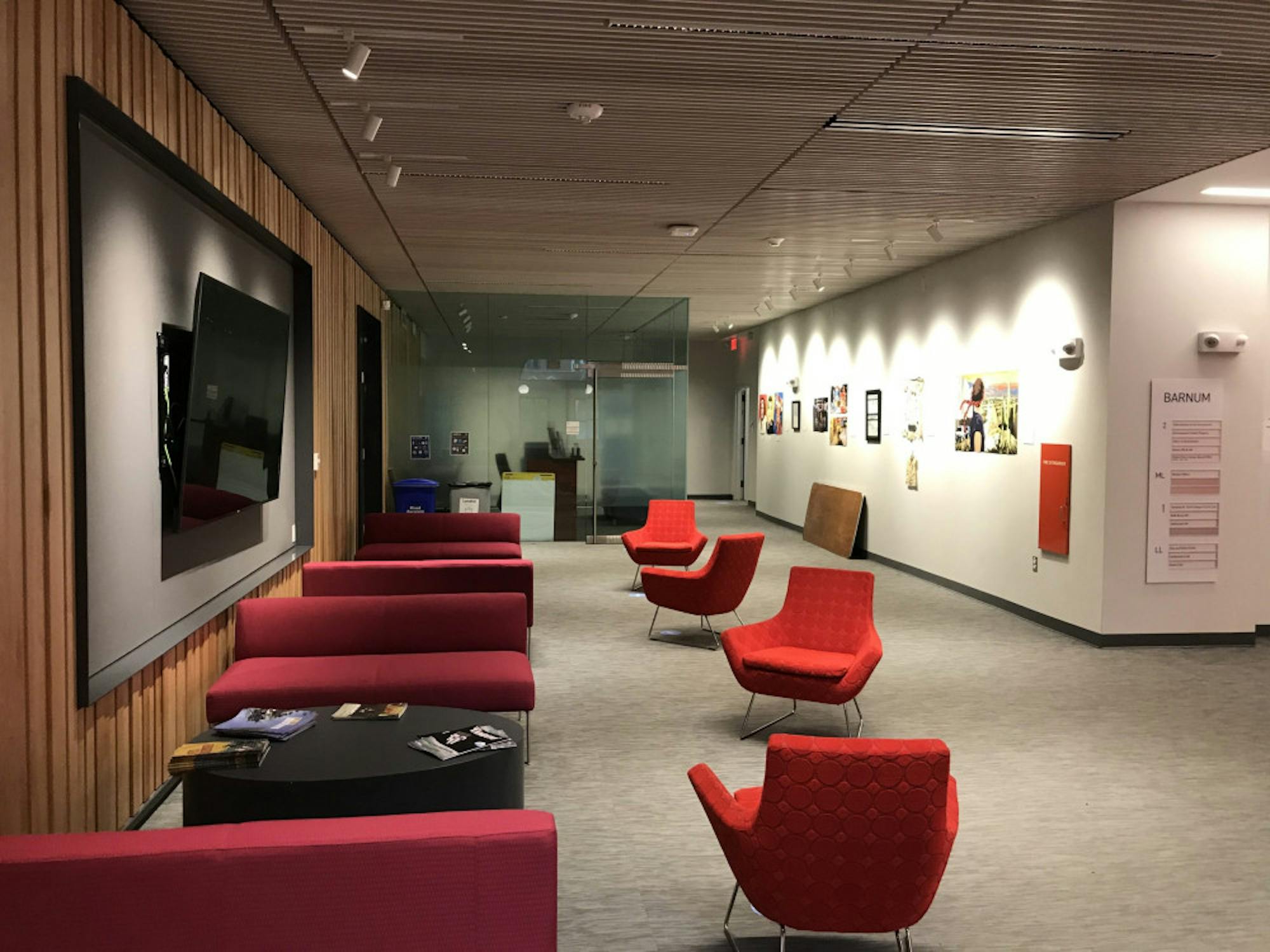Despite the massive challenges posed by the COVID-19 pandemic and the disruption to learning at Tufts, Professor Malcolm Turvey, director of the Film and Media Studies program and occupant of the Sol Gittleman Professorship in Film and Media Studies, is confident that some degree of normalcy will prevail. “We are continuing to offer pretty much all the courses we normally do,” said Turvey in an email to the Daily. “[S]ome will be fully remote, some in person and some a combination of the two.”
Take for instance Turvey’s own class, FMS 20 or “Art of the Moving Image.” He teaches the course in person but also broadcasts the lecture on the streaming service Echo360.Turvey divided the class into two sections and teaches one half of the class in person on Mondays and the other half on Wednesdays. Recitations are conducted twice a month over Zoom. Despite this, Turvey remains adamant that in-person classes remain the “bedrock of our liberal arts education,” reiterating that professors “are all anxious to get back to the in-person teaching.”
Despite this, Turvey sees the pandemic as a sort of double-edged sword, bringing a few benefits in the meantime.
“I think the pandemic has taught all of us the virtues, as well as the limitations, of online, remote learning,”Turvey said. “There are some things that work very well online that we may continue to do in the future even when the pandemic hopefully recedes.”
This isn’t to say that the department’s plans will work without error as many of the department’s filmmaking courses, such as FMS 138, “Advanced Filmmaking,” pose interesting challenges when gathering actors and crew in person is all but impossible.
“We have had to alter the way we teach filmmaking in order to meet safety requirements such as social distancing,” Turvey said on the matter. “Filmmaking is a very hands-on, collaborative endeavor, so keeping people away from each other will be a challenge. But our filmmaking faculty have planned in detail about how to do this, and I am sure we will all be experimenting with our teaching methods in the first few weeks of the semester.”
“We also hope to organize some online, virtual events such as screenings and discussions,” Turvey added.
The current events calendar on the Tufts Film and Media Studies website is empty, apart from a message that reads: “Stay tuned for upcoming fall 2020 events!”
The schedule under “Calendar,” however, is still quite active and is filled with Zoom-based office hours with members of the department, such as Professor Khary Jones, director of undergraduate studies, and Leslie Goldberg, the department’s internship administrator.
“There are still internships out there, even though most are remote,” Turvey noted. “I would recommend contacting Leslie Goldberg, our internship director, about internship possibilities.”
As film internships keep moving forward, so too does the film curriculum as a whole.
“[O]ur courses in filmmaking, PR and marketing, journalism, and so on are all still being offered,” Turvey mentioned.
It would seem that despite adversity, the Film and Media Studies program continues to push forward, helmed by a director who aims to balance both student safety and the continuation of what he considers to be the liberal arts experience. In this instance, Turvey is much like a director of the films he teaches, aiming to execute his vision for the programming and keep students engaged. His vision for the department going forward has been altered but not derailed, and Turvey remains undiscouraged as he continues to chart a course for everyone, from his students in Art of the Moving Image to his department as a whole.






